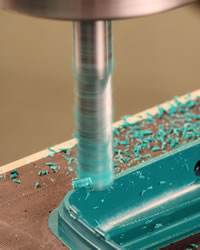Resin is an excellent material to use for securing all sorts of material together. Whether you are working with plastics or metal, wood or fabric, resin can be used in different shapes and forms. However, due to the form it comes it, resin casting can prove a bit tricky to use, especially if you have never used it before. That is exactly why you need to take into consideration these different tips and techniques for the resin casting process.
First, when you are in the middle of the resin casting process, you need to take extra care while it is drying. Once it is completely dry it is perfectly safe to handle. However, while it is drying, you need to make sure it does not come in contact with your bare skin. It is always best to use gloves when resin casting, as this is going to help reduce potential skin contact. The casting is an irritant and can cause damage to your skin. Also, you need to work in a well ventilated area, as it does produce fumes that are both an irritant and toxic. Make sure to keep the lid on the resin while you work as well to help keep the amount of fumes down to a minimum.
When shopping around for resin, you are going to find different kinds of resin for sale. You need to look at what it is used for in order to determine if it is right for your particular needs. Fiberglass boat resin is probably the least expensive resin out there, but if you are going to use the resin on any other material, such as jewelry, wood or metal, you need to look towards a specific resin for these needs. If you don’t, the fiberglass resin is not going to work properly and is going to deteriorate faster. Also, keep in mind that epoxy resins, which are typically used for crafting, have the very best clarity and color, giving off an exceptional shine, plus these resins do not need as much polishing or sanding.
If you want your resin to feature a specific color, you need to mix the pigment in with the resin before you actually apply it to the material. Painting over the top of the resin can be a bit difficult, especially when dealing with metal. As long as you follow these tips you shouldn’t have problems.

